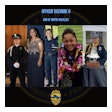Decades ago, Richfield police took a risk, becoming one of the first five law enforcement agencies in Minnesota to assign officers to 12-hour shifts.
With the lengthy shifts came impressive payoffs — a calendar filled with more time off, including three- or four-day breaks to catch up on sleep, help out at home, or socialize, reports the Star Tribune.
"We've been doing it for 25 years now," said Deputy Chief Mike Koob of the Richfield Police Department. "I think we'd have a revolt if we ever went back."
Over the past 10 to 15 years, other Minnesota police departments slowly began making the switch to longer shifts over fewer days.
Inver Grove Heights, Blaine, Lakeville and Ramsey police went to 12-hour shifts in the past six years. Hastings cops will do so next year.
"It's becoming more commonplace in law enforcement," said Lt. Brian Tholen of the Edina Police Department. "It's nice to have the time for officers to go home and spend quality time with their family."
Most police officials say the officers prefer the arrangement over a conventional eight-hour day, citing improved mental health, increased productivity, and more coverage during peak times.
But not everyone is a fan. Lurking behind its appeal are worries about fatigue, which some studies and sleep experts say could hamper judgment or lead to accidents in a profession with high stakes.
The Minnesota Chiefs of Police Association and Law Enforcement Labor Services — Minnesota's largest police union — have taken no position on the issue. Schedules don't usually affect contract negotiations, union officials said.











